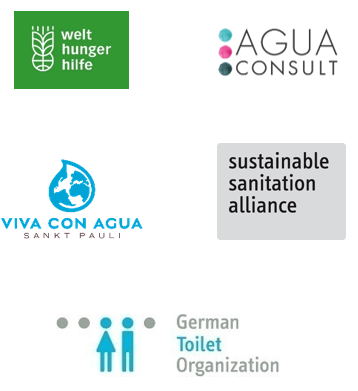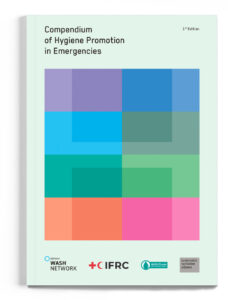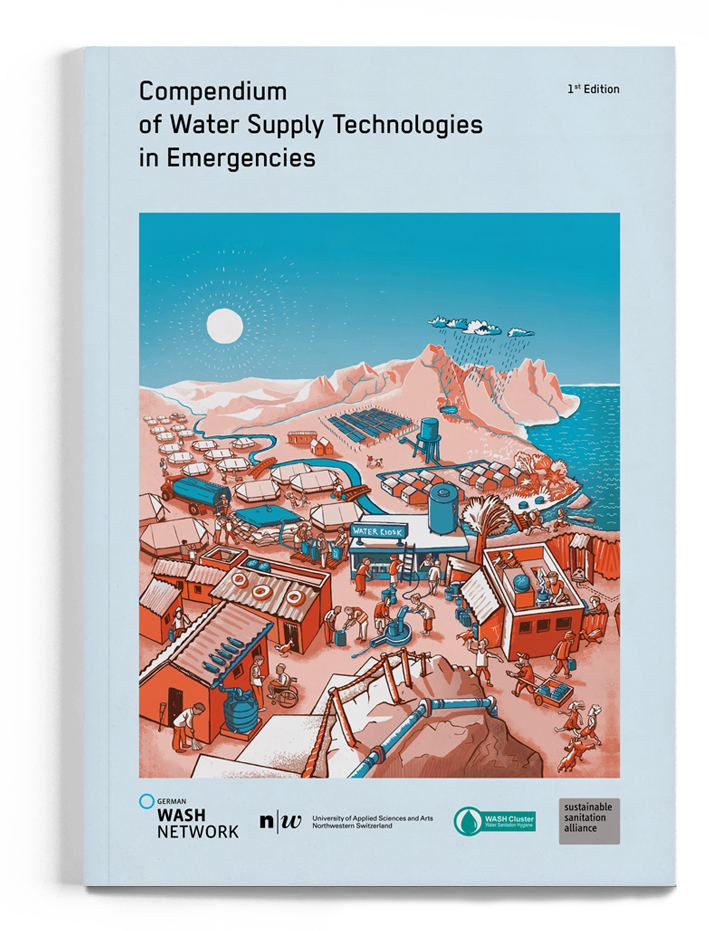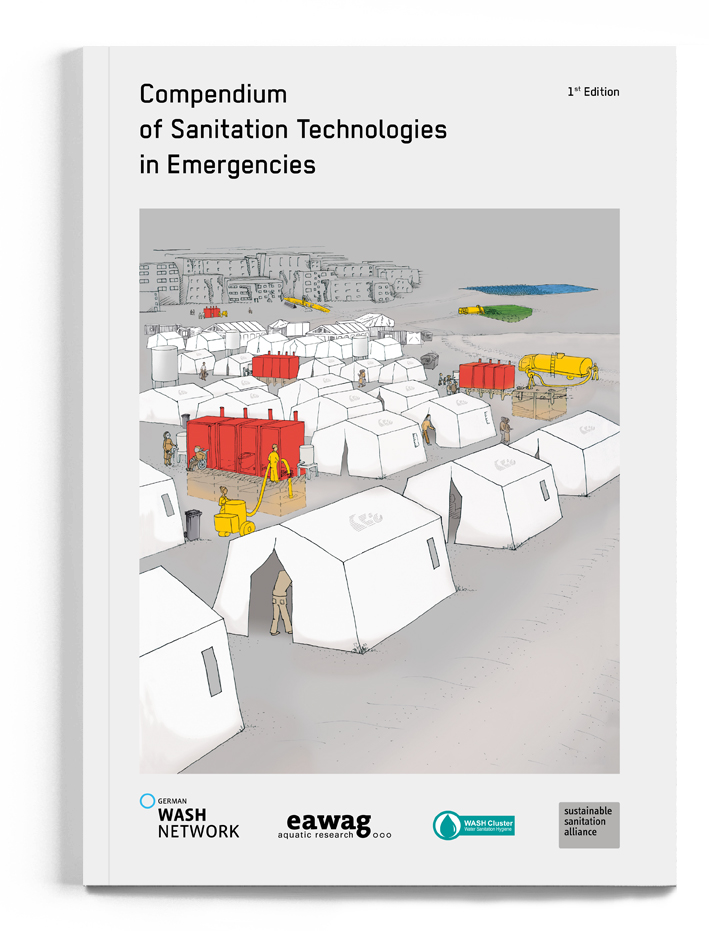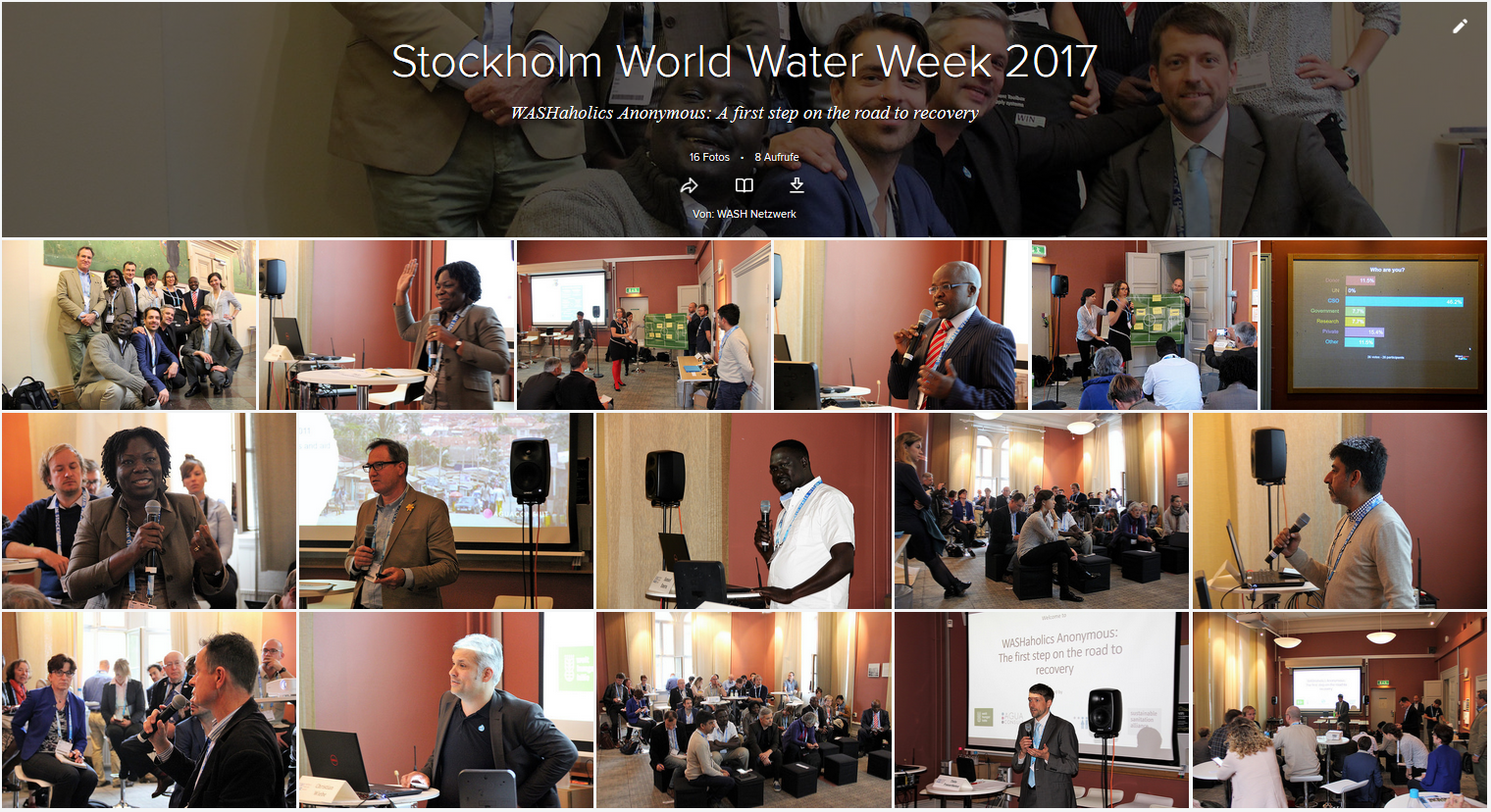Stockholm World Water Week 2017
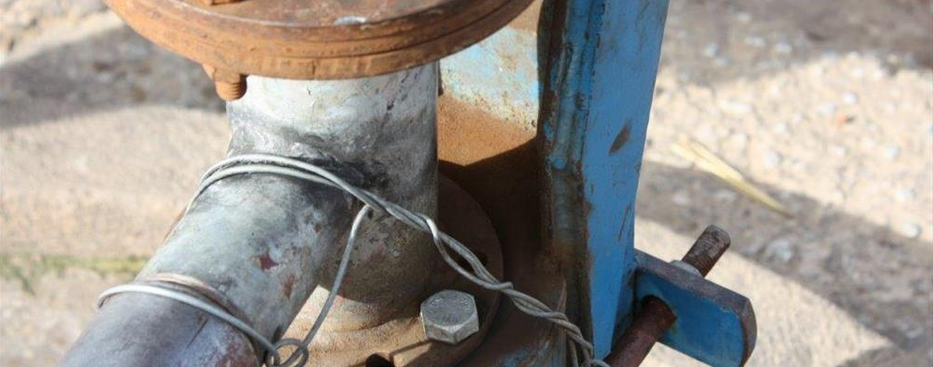
WASHaholics Anonymous: The first step on the road to recovery
How sustainable are your WASH services? This was the guiding question of this year‘s session for “WASHaholics Anonymous: The first step on the road to recovery” at the Stockholm World Water Week. The interactive seminar showcased the Sustainable Services Initiative (SSI), outlined WASH sector challenges in Uganda, Ghana and Kenya and introduced ways to overcome them by taking into account interconnectivities and interdependencies between WASH and other sectors.
Building on “WASHaholic Anonymous – Confessions of Failure and How to Reform” in 2016, numerous WASHaholics came together again in 2017 to make “the first step on the road to recovery” and towards WASH services that last. Moderated by Thilo Panzerbieter (Executive Director, German Toilet Organization), government representatives, development partners, civil society and research organisations discussed the issues raised in an interactive and consultative forum (via real time polling) provided guidance on how to support the initiative and scale practices that enhance sustainable services for all.
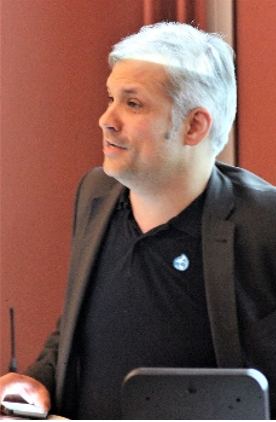
- “We face a new generation of private donors and WASH-supporters who want to go beyond simply financing hardware, but want to promote services that last.”
- “We cannot do things like we’ve done them before”
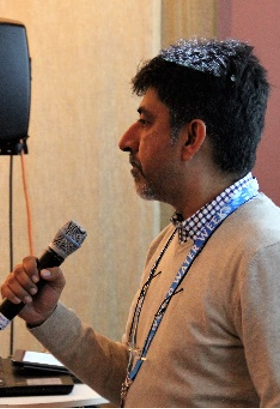
- “Expectations towards sustainability change along the continuum from relief to development i.e. the context we are working in. In the beginning, we just did not know where is our entry point?”
- “In most of WHH-contexts, we are pulled into weak and fragile operational contexts – a pro poor approach of Welthungerhilfe. It is complex.”
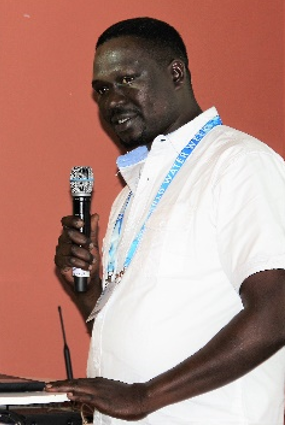
- “The operational context and a comprehensive analysis is key for sustainability planning and the identification of the gaps.”
- “Few partners are willing to implement and fund WASH in communities with fragile operational context.”
- “Support local solutions with local people.”
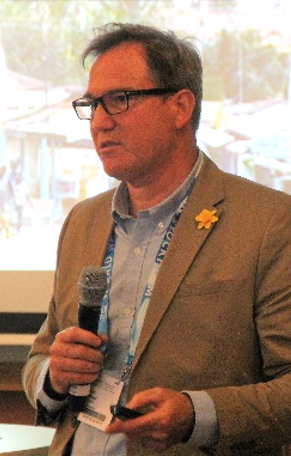
- Ghana’s Water sector is rooted in CBM for 20 years now! This is a long history of operational autonomy. But are they victims of their own success?
- Lessons learnt: Don’t do it alone; understand the system; be prepared to pay for the costs of the change; and also look at the sector level not only at service delivery
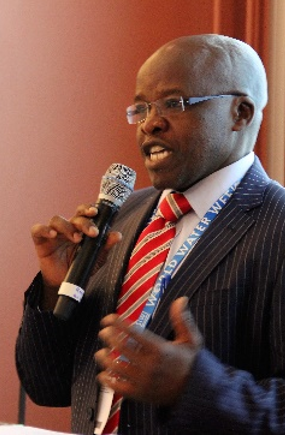
- “Kenya faces challenges in the rural sector which has not yet fully benefitted from many of the governance reforms.”
- “There is a need for accountability, because the government spends tax money.”
- “What are the building blocks for sustainability?”
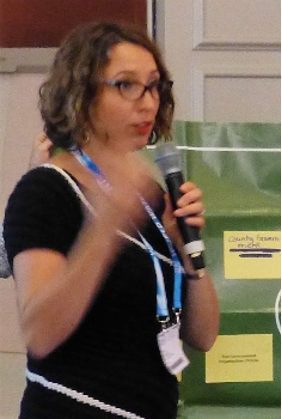
- “With no oversight, there is a danger that community managed systems are captured by local elites.”
- “Together with WASREB and Caritas Switzerland, we aim to ensure that tariffs are fair and systems are managed in a transparent and accountable manner.”
- “WE engage with national and county government to operationalize support mechanisms for small water systems within the local government.”
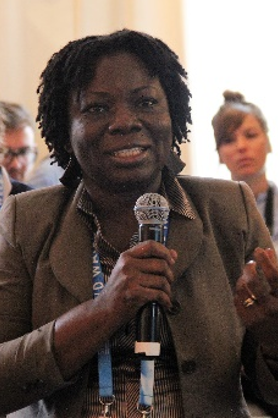
- “Donors want to do real investments in the future.”
- “If we want to change we need the broader picture, because systems don’t work in isolation.”
WASHaholics Anonymous: The first step on the road to recovery
Relevant links
- Flickr Photo Gallery
- WASHaholics Blog
- SuSanA Discussion Forum (WG10: Operation, maintenance and sustainable services)
- WASHaholics @ World Water Week 2017
- WASHaholics @ World Water Week 2016
The link to the showcase event at the official Stockholm World Water Week website you will find here
